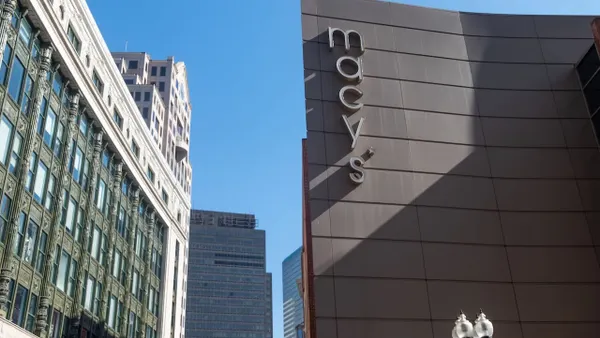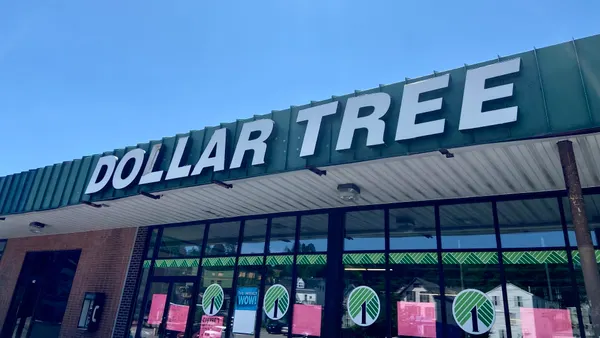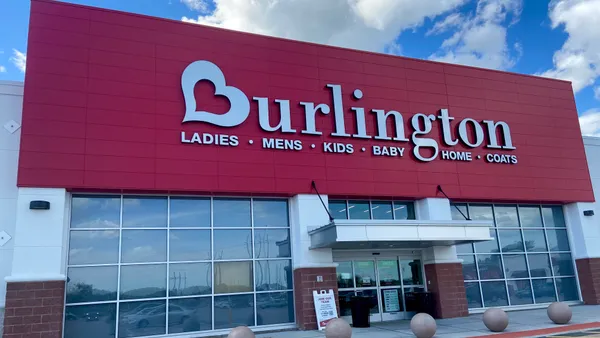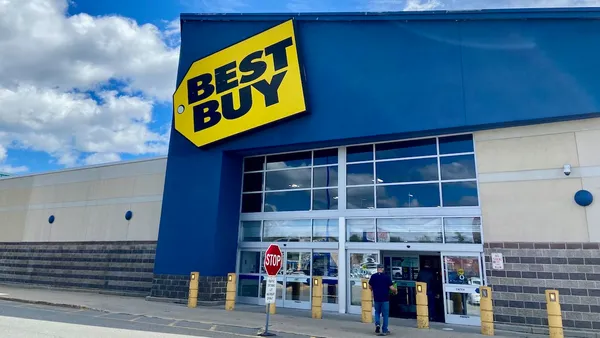UPDATE: May 29, 2019: The two parties involved in the sale of the salvaged remains of Sears Holdings' operations are at war in bankruptcy court, accusing each other of breaching the sale agreement signed earlier this year. Last week, the former holding company for Sears stores alleged in court papers that the new Sears, comprising of more than 400 remaining stores, failed to take on tens of millions of dollars in liabilities and to pay cash owed to it under the sale contract, among other alleged breaches.
The new Sears, dubbed Transform Holdco – a subsidiary of ESL Investments, the hedge fund run by former Sears Holdings CEO Eddie Lampert – has filed its own complaint against the old Sears company, alleging that it failed to deliver inventory, receivables, property and other assets, along with other contract violations.
Dive Brief:
-
"The old Sears" — the remnant of the company that sold its stores and other assets in bankruptcy last month — is suing the buyer of those assets, Transform Holdco or "new Sears," for $57.5 million it says it is owed from the sale, according to court documents filed Monday.
-
The old Sears alleges that Transform Holdco (an entity of Eddie Lampert's hedge fund) is in violation of its contractual obligations under the asset purchase agreement and automatic stay, and that the funds it's requesting are being unlawfully withheld. The company says Transform owes it $41.3 million for credit card and cash transactions that occurred before the sale closed, as well as $16.2 million for a portion of February rent, according to the documents.
-
Earlier this month, Transform Holdco requested court mediation to resolve ongoing issues between the two businesses, alleging the old Sears intentionally delayed vendor payments and shortchanged on inventory. In the documents filed this week, the old Sears alleged that request "is nothing more than an attempt to delay turning Estate property over to the Debtors by conflating unrelated post-closing disputes."
Dive Insight:
The Sears name and stores may have survived bankruptcy, but it's not all greener grass on the other side. The last few weeks have been marred by several contentious court battles.
In response to the litigation filed this week, a Transform spokesperson said the company is "willing to work with the debtors to resolve any disputes expeditiously and believes that a mediator can facilitate that process, help the debtors avoid unnecessary expense and allow us to keep our full focus on turning around the new Sears."
The old Sears could not be reached for additional comment, but a hearing on the matter is anticipated to take place on March 21, according to the documents.
One of the first big product announcements after Lampert and his hedge fund took back control of Sears was the rollout of the Craftsman Ultimate Collection. Considering its weathered reputation among American workers, the move might have been a way to reinvigorate sales and drive much-needed traffic to stores. But Stanley Black and Decker — a global tool manufacturer that sells under multiple brands including Craftsman — sued Sears for the alleged breach of a trademark license agreement related to the iconic Craftsman brand. In the marketing of the toolset, Sears was touted as "the real home" of the brand. That didn't sit well with Stanley Black and Decker.
Beyond litigation, Sears faces the much bigger challenge of remaking an iconic brand into something relevant for today's digitally savvy shoppers. That's easier said than done, considering the sector has contracted. Square footage in the department store sector as a whole declined an estimated 13% in 2018, according to Moody's Investors Service, which also noted earlier this year that a further approximately 4% decline is expected in 2019. Sears, under Transform, has reiterated a turnaround plan bent on its Shop Your Way loyalty program.
Analysts and other industry experts, however, say it's Sears stores that are the most critical part of remaking the business into a retail destination. "Radical surgery should be anticipated and is certainly required," Alan Treadgold, a partner in Retail Strategy at PA Consulting Group, told Retail Dive earlier this year. So far though, resolving litigation appears to have taken over as priority number one.












